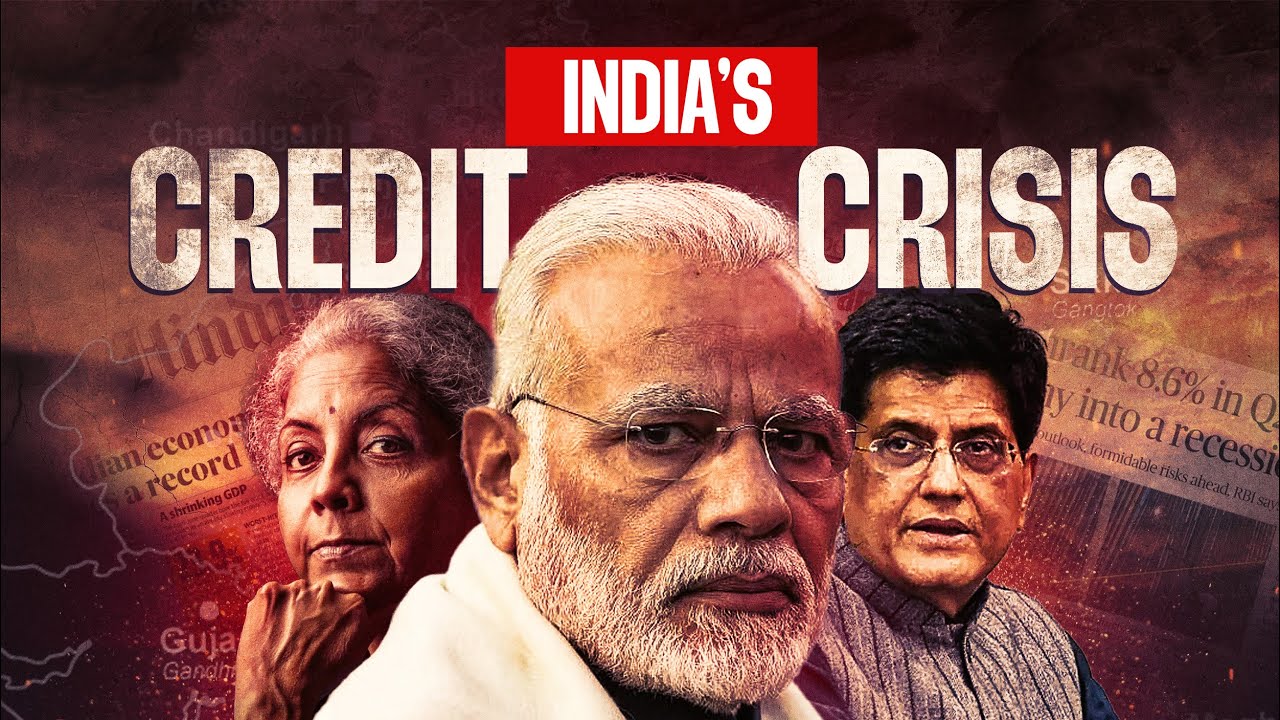"Indian Economy Doing Incredibly Well" says World Economic Forum Chief | Vantage with Palki Sharma
Summary
TLDRIn an interview, World Economic Forum President Borge Bren discusses India's remarkable economic growth amidst global conflicts and recession fears. He highlights India's potential to become the world's third-largest economy by 2027, driven by policy reforms, infrastructure development, and a digitally literate young population. Bren also addresses global concerns over rising debt levels, emphasizing the need for strategic investment to maintain growth and competitiveness.
Takeaways
- 🌟 India is recognized as the world's fastest-growing economy and is projected to become the third-largest economy by 2027 despite global challenges.
- 🔍 The IMF predicts a global economic growth of over 3%, avoiding a feared recession, but there are concerns about geopolitical issues affecting trade and growth.
- 📈 India's economy is performing remarkably well, even though it is influenced by global conditions, with a trend growth of around 4% historically.
- 💹 India is on track to become a $10 trillion economy in the coming decade, which would make it the third-largest economy globally.
- 🚀 India's growth has led to significant poverty reduction, lifting 400 million people out of extreme poverty, a feat previously seen only in China.
- 🏗️ India's rapid infrastructure development, including new airports, trains, and roads, is a key factor in its economic growth.
- 💼 The Indian economy is becoming more open to foreign direct investment and providing a level playing field, which is attracting more businesses.
- 🔗 India is benefiting from the diversification of global value chains and 'friend-shoring', especially with increased manufacturing from countries like the US.
- 📱 The growth in India's services and digital economy is outpacing traditional manufacturing, with a digitally literate young population being an asset.
- 🆔 India's digital ID system has been crucial in facilitating economic transactions and increasing efficiency.
- 💡 Policy recommendations for India include investing the revenues from 8% growth into areas that will enhance its future competitiveness.
- 📉 There are concerns about rising debt levels, especially in developing countries, which could pose risks to the global economy if not managed properly.
Q & A
What is the current global economic outlook according to the IMF?
-The IMF predicts that the global economy will grow more than 3%, despite the presence of two major wars and multiple conflicts.
How does India's economic growth compare to the global trend?
-India is the world's fastest-growing economy and is expected to become the third-largest economy by 2027, defying global economic slowdowns.
What impact have conflicts such as in Ukraine and Gaza had on the global economy?
-The conflicts have not yet escalated to a level that would severely impact trade and growth, but there is a concern that they could lead to a 'geopolitical recession'.
What is the role of India's economic reforms in its growth trajectory?
-India's economic reforms have been crucial, with infrastructure development, opening up to foreign direct investment, and diversification of value chains playing significant roles.
How has India managed to lift millions out of poverty?
-India's growth has led to the eradication of poverty at an impressive scale, lifting over 400 million people out of extreme poverty.
What is the significance of India being a democracy in achieving its economic growth?
-Achieving such economic growth within a democratic framework is notable due to the complexities and challenges that democracies face.
What is the 'X Factor' that has allowed India to defy global economic trends?
-The 'X Factor' includes policy decisions, infrastructure development, opening up to foreign investment, and a focus on services and digital economy.
How has the diversification of value chains benefited India?
-India has benefited from the diversification of value chains as countries look to reduce their reliance on single manufacturing sources.
What is the current state of foreign direct investment in India?
-India is becoming more open to foreign direct investment, which is contributing to its economic growth.
What is the role of India's digital economy in its growth?
-The digital economy is growing stronger than traditional manufacturing, and India's digitally literate young population is a significant advantage.
What risks does the rising global debt pose to the developing world?
-Rising debt levels, especially in developing countries, pose a risk as high interest rates due to inflationary pressure can lead to debt servicing becoming the largest budget cost.
What is Borge Bren's recommendation for India's economic policy moving forward?
-Bren suggests that India should continue its reforms and invest revenues from growth into areas that increase its future competitiveness.
Outlines

このセクションは有料ユーザー限定です。 アクセスするには、アップグレードをお願いします。
今すぐアップグレードMindmap

このセクションは有料ユーザー限定です。 アクセスするには、アップグレードをお願いします。
今すぐアップグレードKeywords

このセクションは有料ユーザー限定です。 アクセスするには、アップグレードをお願いします。
今すぐアップグレードHighlights

このセクションは有料ユーザー限定です。 アクセスするには、アップグレードをお願いします。
今すぐアップグレードTranscripts

このセクションは有料ユーザー限定です。 アクセスするには、アップグレードをお願いします。
今すぐアップグレード関連動画をさらに表示

Perspective : India's Resilient Economy | 11 January, 2023

ENGLISH SPEECH | PALKI SHARMA: India's Right Path (English Subtitles)

Trump Ignites Global Trade Firestorm: Will It Reshape Trade Or Trigger Turmoil? | Trump Tariffs News

Best of Qatar Economic Forum 2024

Why India has a POOR CREDIT RATING Despite being the fastest growing ECONOMY? : Detailed CaseStudy

‘Biggest Fear Is The Fear Of US Recession’: Steve Englander
5.0 / 5 (0 votes)
